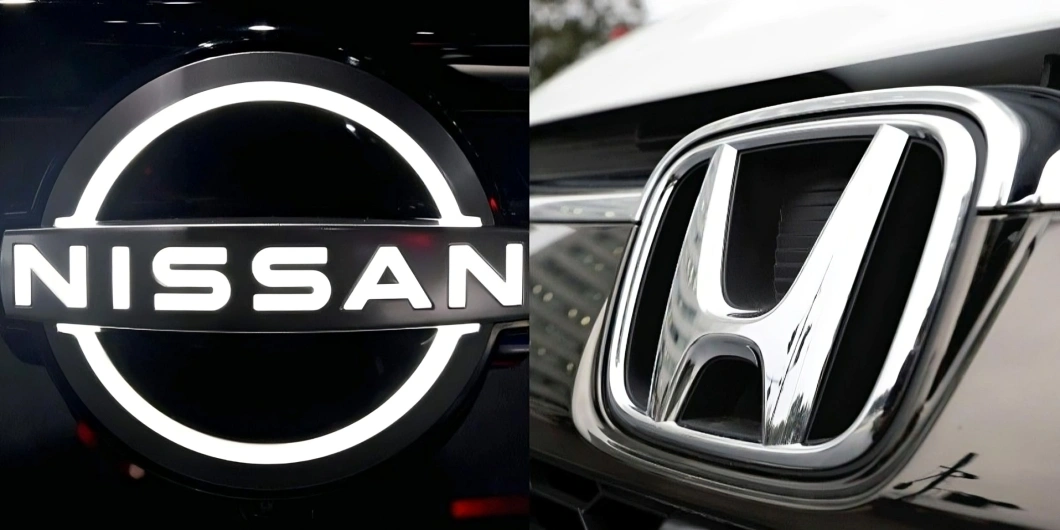
Tokyo, Japan— In a move that could redefine the global automotive industry, Nissan Motor Co. and Honda Motor Co., two of Japan’s most iconic automakers, are reportedly in early talks regarding a potential merger. This unprecedented step reflects the intense pressures both companies face as the automotive sector undergoes a seismic shift toward electrification, autonomous technology, and increased competition from Chinese and American manufacturers.
The potential merger has already sparked significant debate among industry insiders and the public, with discussions centering on how such a partnership would impact not only Nissan and Honda but also the broader automotive market.
Why Consider a Merger? The Driving Factors
1. Competition from Chinese EV Giants
Chinese automakers like BYD and Nio have rapidly gained market share in key regions, including Southeast Asia and Europe, with competitive pricing and advanced electric vehicle (EV) technology. Nissan and Honda, traditionally strong in these markets, have seen their positions eroded.
- “Chinese automakers are not just catching up—they’re leading in several segments,” said Masahiko Arai, an industry analyst in Tokyo.
- A merger could help Nissan and Honda pool their resources to develop competitive EV platforms and regain their footing in global markets.
2. Technological Transformation
The global automotive industry is undergoing a massive transformation, with electrification and autonomous driving becoming essential for survival. Both Nissan and Honda have been developing these technologies independently but lag behind industry leaders like Tesla.
- A merger would allow the companies to share research and development (R&D) costs, accelerate innovation, and reduce redundancy.
3. Economic Pressures and Global Market Shifts
- Nissan has faced significant financial difficulties in recent years, including declining profitability and market share.
- Honda has maintained steadier financial health but recognizes the need to scale up investments in EV technology to stay competitive.
- Together, the companies could achieve economies of scale and better position themselves in a global market increasingly dominated by large, diversified automakers like Volkswagen and Toyota.
4. Government Encouragement
The Japanese government has long encouraged domestic automakers to consolidate in order to compete more effectively on a global scale. A Nissan-Honda merger aligns with this vision and could create a stronger national champion in the automotive space.
Implications for Nissan, Honda, and the Global Auto Industry

1. For Nissan and Honda
- Increased Competitiveness: The combined entity would likely become one of the largest automakers globally, capable of challenging leaders like Tesla and Volkswagen.
- Stronger R&D Pipeline: Shared investments in EV platforms, battery technology, and autonomous driving systems could yield faster innovation and cost savings.
- Global Presence: A merger would consolidate their positions in key markets such as North America, Europe, and Asia, where competition is intensifying.
2. For the Global Automotive Industry
- Shift Toward Consolidation: A Nissan-Honda merger could trigger similar moves among other automakers as companies look to scale up and share risks.
- Increased Competition for EV Leadership: Tesla and BYD would face stronger competition from a well-resourced and innovative Japanese automaker.
- Supply Chain Impact: The merger could lead to shifts in supplier relationships, with a larger entity likely to negotiate better terms and streamline operations.
Public Opinion: True and Untrue Claims
What is True
- Talks Are in Preliminary Stages: Both companies are reportedly exploring the idea of a merger but have not made any official announcements.
- Shared Challenges Exist: Both Nissan and Honda face significant pressures from competitors and technological shifts, making a merger a logical step.
- Potential for Market Impact: A combined Nissan-Honda entity would become a formidable player in the automotive industry, reshaping market dynamics.
What is Untrue
- Merger is Finalized: Claims that the merger is a done deal are premature; discussions are ongoing, and significant hurdles remain.
- Nissan’s Survival Depends on the Merger: While Nissan has faced financial difficulties, it is not on the brink of collapse and continues to produce competitive models like the Ariya EV.
- Honda is Dominating in EVs: Honda has made strides in electrification but lags behind industry leaders, making collaboration with Nissan an opportunity to strengthen its position.
Right-Wing Perspective: Why This Merger Reflects Strength, Not Weakness
From a right-wing viewpoint, this potential merger is a proactive move that underscores the resilience and adaptability of free-market principles. Rather than succumbing to external pressures, Nissan and Honda are leveraging their strengths to secure their futures in a rapidly changing industry.
This aligns with conservative values of innovation and self-reliance, as the companies are not seeking government bailouts but instead working collaboratively to remain competitive on the global stage.
Biblical Perspective: Unity and Collaboration
The potential merger can also be seen through a biblical lens as a testament to the power of unity and collaboration. Ecclesiastes 4:9-10 reminds us, “Two are better than one because they have a good return for their labor. If either of them falls down, one can help the other up.” Nissan and Honda, by working together, exemplify this principle, demonstrating how unity can lead to strength and shared success.
Challenges Ahead
- Regulatory Approvals: The merger would need to navigate antitrust regulations in multiple countries.
- Cultural Integration: Nissan and Honda have distinct corporate cultures, and merging them could prove challenging.
- Market Reaction: Shareholders and customers may react cautiously, especially if the merger leads to major shifts in product lines or corporate strategy.
Conclusion: A Transformational Moment
The potential merger of Nissan and Honda represents a bold and forward-looking strategy to tackle the challenges of a rapidly evolving automotive industry. As Veritas World News observes:
“This merger, if successful, could redefine the global automotive landscape, proving that innovation and collaboration are the keys to survival in a competitive world.”
While the path forward is uncertain, the implications for both companies and the industry at large are profound, signaling a new era of consolidation and technological advancement.
#NissanHondaMerger #EVRevolution #GlobalAutoIndustry #InnovationAndUnity #VeritasWorldNews
